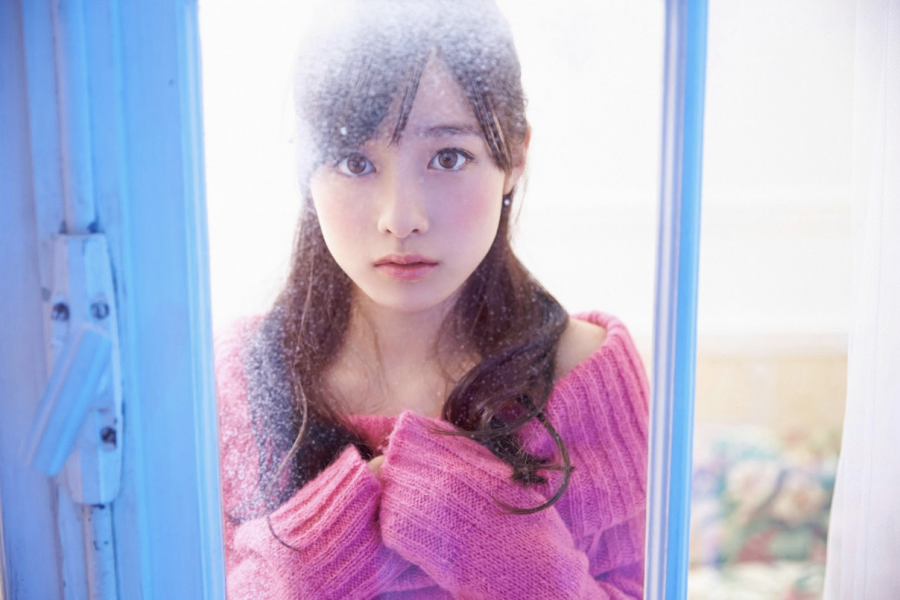Joshiryoku: girl power or wife skill?
Candy Yu via Flickr under CC license
Image of Kanna Hashimoto, a Japanese actress regarded as having high joshiryoku.
November 15, 2018
If you have been in the Japanese community for a while, you have probably heard of the word joshiryoku. Every women’s magazine has had a cover story on how to improve your joshiryoku through what you wear and how you act; every morning television program has covered tips and tricks on how to make others believe you have high joshiryoku through perfect Instagram pictures.
In Japanese media, joshiryoku refers to a feature that a girl must have in order to be attractive and liked by men. Informational media site Mynavi Woman defines the word as “a girl’s ability to be charming and good-looking”. The site also lists some of the attributes of girls with joshiryoku such as the ability to cook, to look nice for every occasion with perfect makeup and clothes, and to constantly care for others in her surroundings. When a professor at Nagoya City University asked 800 university students in Nagoya what qualities they associated with joshiryoku, the major responses were “housework”, “appearance”, and “makeup”.
In addition, according to The Asahi Shimbun, one of the major newspapers in Japan, about 35% of the respondents to a survey about joshiryoku noted that joshiryoku is the capacity to cook, clean, and do the housework properly — the stereotypical tasks of a ‘wife’. Another 28% replied to the survey saying that attentive and caring girls have high joshiryoku in current Japanese society. For example, a woman is expected to have bandages and handkerchiefs in her bag and to serve food and pour drinks for men when they are out for a meal.
Although us Sacred Heart students are not exposed to the word joshiryoku as much, many Japanese women hear the word being used in schools and in the workplace. For example, when a girl hands out a band-aid when others get injured, the girl is praised for having high joshiryoku by showing that she is always prepared to care for others. On the other hand, when a girl does not have a handkerchief to wipe her hands, she is seen as having low joshiryoku as it demonstrates a lack of self care, and comments such as “Come on!” and “Are you really a girl?” may be thrown around in response. In the workplace, when a woman brings a nicely decorated lunch-box, she is applauded for having high joshiryoku and is told that she will be a good wife. But when a woman does not fix her makeup throughout the day, she is seen as having low “joshiryoku” by failing to look pretty 24/7.
The social stigma surrounding the concept of joshiryoku pressurizes Japanese women to meet the daunting “minimum standards” to be a girl.
Ironically, the word joshiryoku consists of the kanjis “女子力” which directly translate to “girl power”. As a gender equality advocate, I instantly associate the term “girl power” with female empowerment and Rosie the Riveter. In fact, Japanese dictionary Digital Daijisen defines joshiryoku as the “the ability of a woman to elevate her way of living and to present her true self” — a quality that should be valued no matter the gender. Now, don’t you think that it’s odd that Japanese media and society portray joshiryoku as a box that every girl must fit into?
If so, you are not the only one. More than half of the respondents in The Asahi Shimbun survey revealed that they do not have a positive impression of the word “joshiryoku”. One of the female teenage respondents claimed that she feels pressured by the stereotypes and expectations of a girl being imposed on her by society. Another female respondent in her twenties commented that she even felt rage when her colleague complimented her for having high joshiryoku when she distributed salad onto other people’s bowls at a dinner out of kindness: “I felt very angry that I was being framed in the category of “woman” just because I did something that I thought would be helpful for others.”
Twenty percent of the male respondents to the survey were also surprisingly (and thankfully) against the usage of joshiryoku. One man in his twenties argued that the use of joshiryoku re-justifies Japan’s traditional job divisions amongst different sexes and prevents female empowerment in the work field. Another man in his sixties even criticized that in the extreme, using a word regarding a characteristic of a gender could be a form of sexual harassment. When we have so many voices from different gender and age groups that object to the word “joshiryoku”, we can understand the discomfort the word “joshiryoku” radiates in the Japanese society.
With the recent rise in controversy surrounding joshiryoku, the Japanese community must learn to use the word for true female empowerment rather than for stereotypes and expectations. Joshiryoku, instead of applauding women for their ‘wife’ skills and appearance, should praise actual ‘girl power’ involving achievements by women. With true joshiryoku, girls can do anything.













































